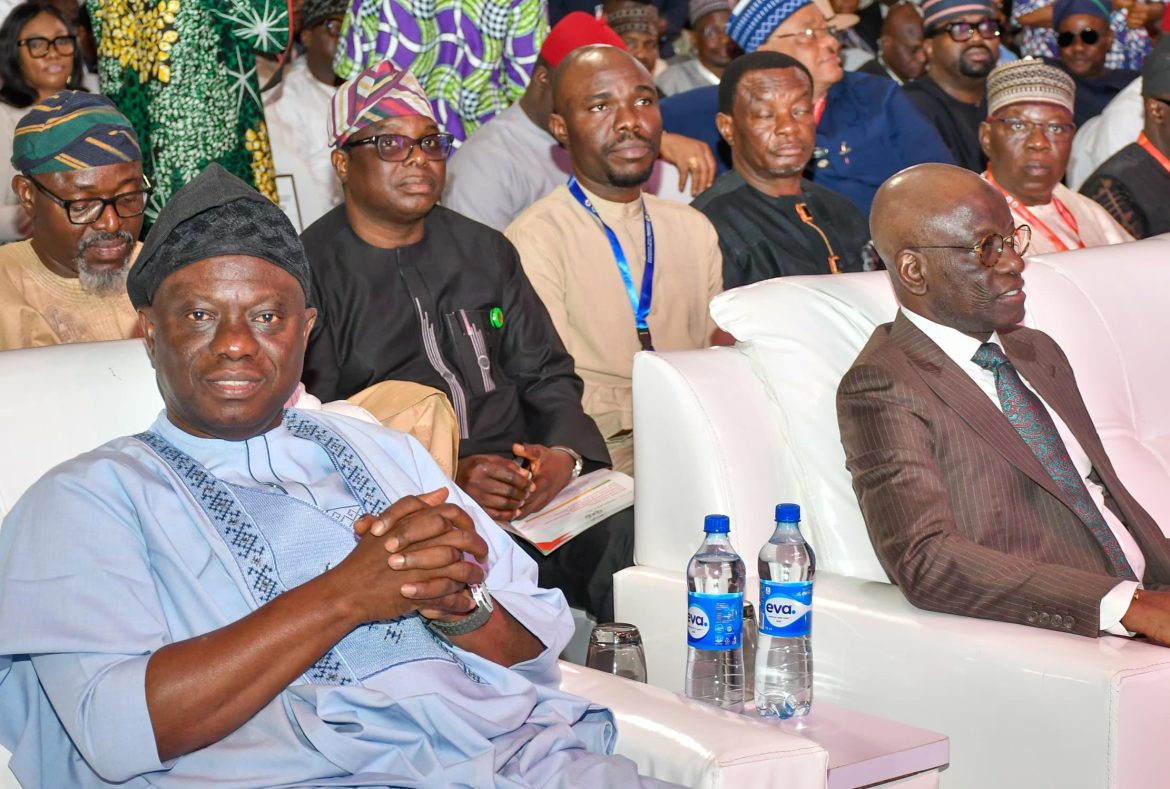402
By Tracy Moses
The second day of the 2025 National Conference on Public Accounts and Fiscal Governance featured a compelling call for reform as the Accountant-General of the Federation, Dr. Shamsudeen Babatunde Ogunjimi, urged a shift from retrospective audits to real-time fiscal transparency driven by digital innovation and institutional accountability.
Addressing participants at the high-level forum in Abuja on Monday, organized by the Public Accounts Committees of both the Senate and House of Representatives, Ogunjimi emphasized that Nigeria can no longer afford outdated financial management practices amidst its challenging economic landscape.
“With our current fiscal realities, every mismanaged naira is a missed opportunity for healthcare, education, infrastructure, and national security,” he warned. “We must move beyond passive bookkeeping to proactive, preventive oversight.”
He lauded the efforts of the National Assembly’s Public Accounts Committees in convening the conference, describing it as a timely platform to push the boundaries of transparency, accountability, and fiscal discipline in governance.
According to the Accountant-General, the core of every democratic system lies in the accountability of public office holders to the people. Public institutions, he stressed, are not just bureaucratic structures but custodians of financial integrity and stewards of public trust.
While acknowledging incremental progress in reforming Nigeria’s public finance architecture, Ogunjimi admitted that significant challenges remain, ranging from weak audit compliance and poor procurement standards to delayed budget implementation and capacity constraints across MDAs.
He noted that in the face of dwindling revenues, rising debt, and global economic headwinds, Nigeria must urgently put an end to wasteful practices and build a resilient fiscal governance framework.
To this end, Ogunjimi advocated for the deepening of digital reforms such as the Treasury Single Account (TSA) and Remita, which he credited with curbing financial leakages and promoting transparency. He, however, called for a more comprehensive adoption of such systems across all tiers of government.
Highlighting the critical role of the legislative Public Accounts Committees, he stressed that their audit findings must lead to tangible reforms rather than being shelved.
“The legislative audit process should not end with ceremonial reports or endless debates. We need timely audits, full implementation of recommendations, and properly resourced oversight institutions,” he said.
He further encouraged Ministries, Departments, and Agencies (MDAs) to digitize their financial processes to minimize manual intervention and reduce corruption risks. Fiscal governance, he noted, should be treated as a national imperative, not merely a bureaucratic requirement.
Ogunjimi also called for greater collaboration between all arms of government, civil society, the media, and citizens to promote a culture of civic responsibility and financial transparency. He acknowledged the role of development partners in supporting Nigeria’s reform agenda, emphasizing that their efforts must translate into institutional, sustainable change.
Referencing major reforms such as the removal of fuel subsidies, the Finance Act, and revisions to the Petroleum Industry Act, Ogunjimi said these reflect Nigeria’s growing commitment to fiscal prudence and forward-looking governance.
He challenged conference participants to rise above policy declarations and pursue implementable solutions that will strengthen audit responsiveness, promote accountability, and empower citizens to demand good governance.
“Fiscal responsibility must become our default setting,” he declared. “We must build a system where transparency is a given, decisions are made with integrity, and future generations are not left to pay the price for today’s mismanagement.”
Also speaking at the event, the Auditor-General for the Federation, Mr. Shaakaa Chira, echoed the call for transparency and accountability to be institutionalized as national values.
He noted that the theme of the conference, “Fiscal Governance in Nigeria: Charting a New Course for Transparency and Sustainable Development”, reflects the aspirations of millions of Nigerians who seek responsible and open management of public funds.
“The timing of this conference could not be more critical. Nigeria, like many other nations, is grappling with inflation, debt, and public demand for accountability,” Chira said. “It is imperative that the resolutions from this gathering drive real, measurable reforms, not just talking points.”
He underscored the importance of enhancing audit performance, fostering inter-agency collaboration, and rebuilding public trust in governance structures.
Chira urged all stakeholders, legislators, auditors, policymakers, civil society, academics, and development partners, to commit to the implementation of the conference’s recommendations.
He reaffirmed the readiness of his office to work in close partnership with the National Assembly and relevant stakeholders to transform the conference resolutions into lasting fiscal reforms.



